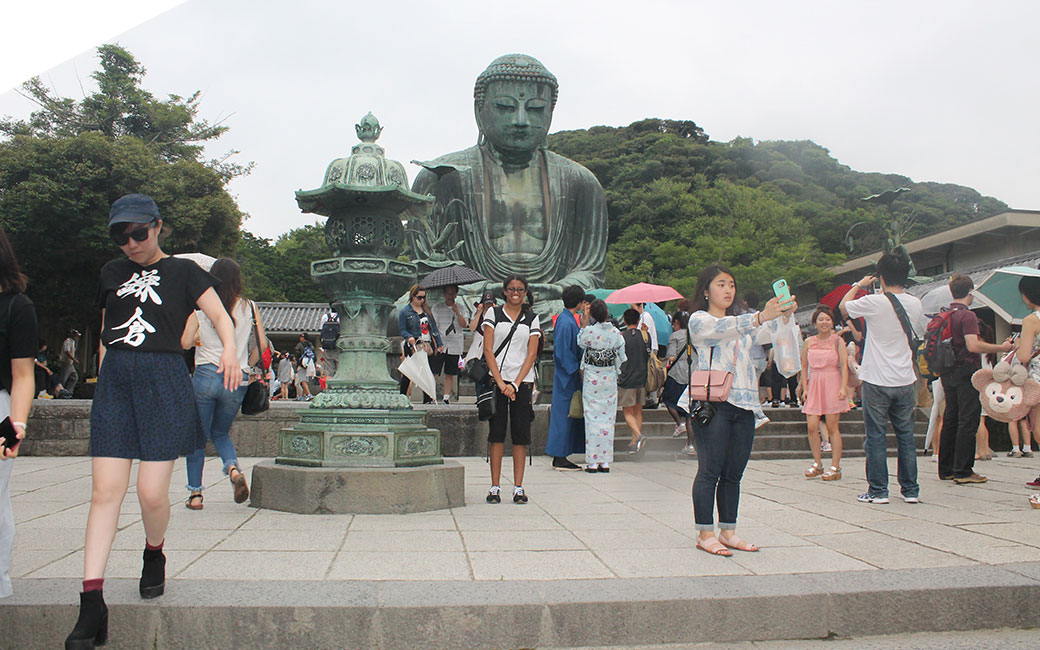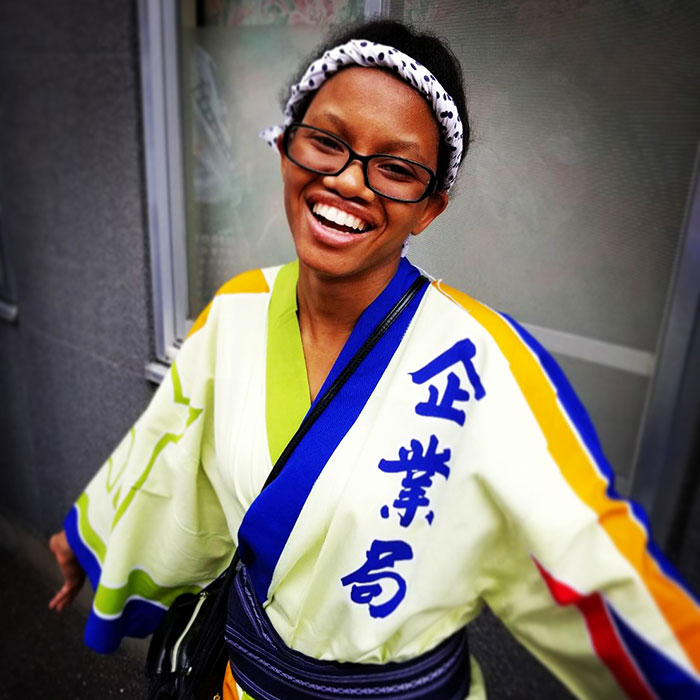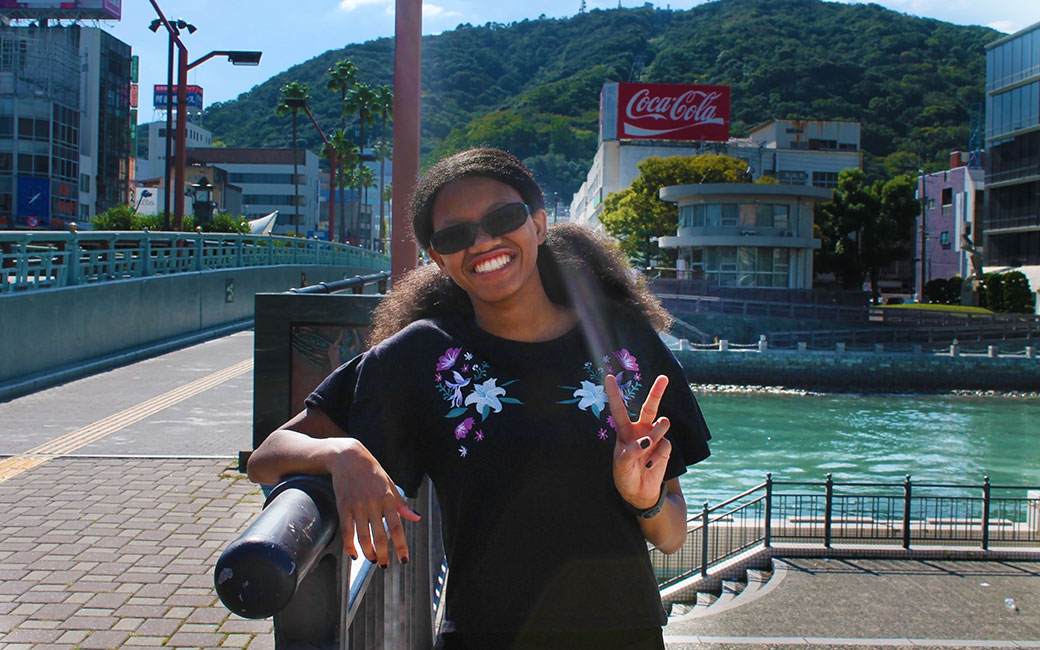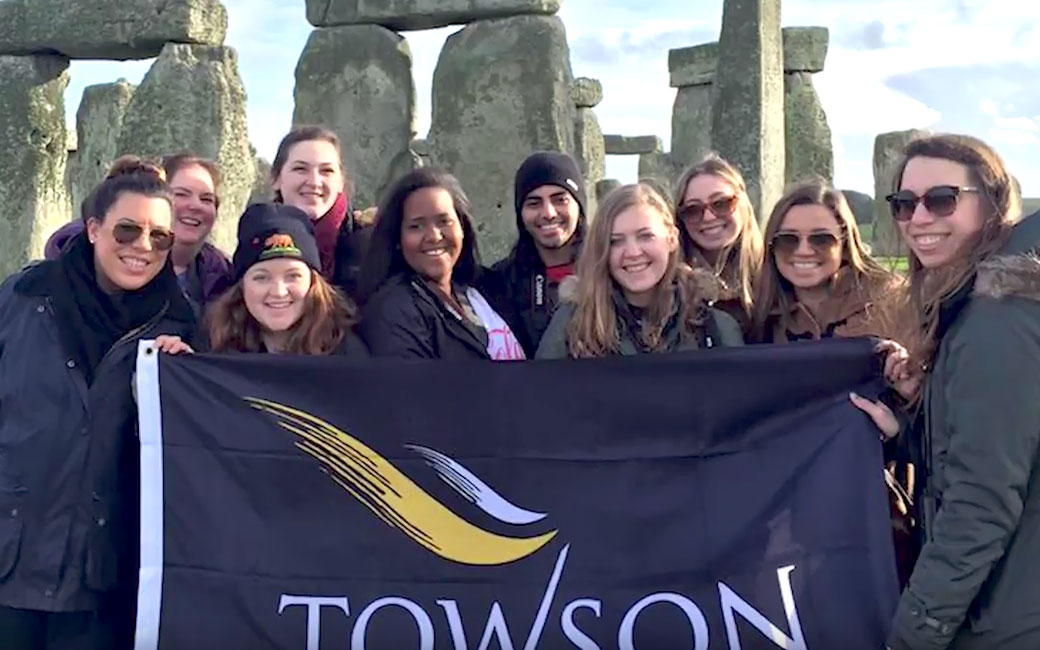
Ready to expand their horizons, record number of TU students study abroad
The number of TU students studying abroad has increased more than 40 percent since 2014, particularly among underrepresented student populations.
By Megan Bradshaw on October 13, 2017
In June 2017, the Towson University Study Abroad Office received a “Going Places!” award from partner CISabroad. The award goes to one of 200 universities nationwide who “broaden academic perspectives, encourage student development and promote global awareness through its innovative work in education abroad.”
TU Abroad—and TU students—are indeed going places. As a part of the IIE Generation Study Abroad Initiative, TU committed to an increase of 40 percent in students going abroad by 2020.
Through a focus on increased funding, access and curriculum integration, TU has exceeded its growth goal three years ahead of schedule, reaching 42 percent between 2014–15 and 2016–17.
Increased funding
Study Abroad gave out nearly $96,000 in grants and $152,000 in scholarships, including a new scholarship called the TU Institutional Diversity Study Abroad Scholarship. Another new scholarship began in summer 2017 to encourage studying abroad in designated priority countries.
One of those grants was the 100,000 Strong in the Americas, which facilitated an exchange of students from TU and the Universidad de Piura in Peru and funded a program that focused on environmental sustainability, service learning and cross-cultural communication.
TU’s Luis Muniz ’18 immersed himself in all aspects of the trip, spending an extra week in Peru before classes started there. When he learned about the opportunity, he didn’t hesitate to sign up.
“I was really surprised about it,” Muniz said. “This program really opened my eyes about how much work Towson is doing to become a more diverse campus academically, socially and environmentally.”
Increased access
TU Abroad focused on increasing participation of underrepresented students — people of color, men, first-generation students, students with disabilities, certain majors, athletes and LGBTQ+ students — as part of its initiative.
“My biggest reason to intern abroad as an undergrad was to prove to myself that I could be 100 percent independent,” said Kaylee Davis ‘20. “I am so lucky to have such supportive parents at home who help me in any way they can, but I knew that I wouldn't truly be able to experience independence if I stayed in my comfort zone. I've spent my entire life telling myself that my wheelchair is a barrier, but the barrier was actually me. Although transportation was sometimes a bit of a hassle, I was determined to do whatever I could to ensure I had the best experience.”

Since accessibility isn’t mandated by law in other countries, Davis advises to look for experiences from people with disabilities who have traveled to that location, and research what amenities are available for individuals with disabilities.
Davis has more advice for students with disabilities who are unsure about going abroad: do as much as you can and don’t give up.
“If I had let my fear get to me, I would have never been able to see ‘Harry Potter and the Cursed Child,’ seen Wimbledon and have a tennis player notice a photo I took of him, or have traveled to Scotland — a place I've dreamed of going for years. You may think you can't do anything because you have disabilities, but that's not true! It may take some hurdles to get to the finish line, but I promise you'll get there!”
Two hundred and twenty-two students studied abroad in summer 2017, representing the largest group ever in a single term. Overall, participation increased in five out of eight priority countries: Czech Republic, Cuba, Ecuador, Morocco, and South Africa. Twenty-five percent of all students who studied abroad in 2016–17 were Pell Grant recipients.
TU Abroad was extremely active in promoting its programs, partnering with the Center for Student Diversity, hiring a liaison to reach out to veteran students, and redoubling efforts to connect with faculty program leaders.
TU Faculty on the Study Abroad Experience
Watch this video to get a faculty perspective on the value of studying abroad.
Faculty-led programs—popular for their short length and ability to fit into student schedules—were a large driver of the participation increase. In 2016, College of Business and Economics professors Seth Gitter and Tobin Porterfield led 15 students on a trip to Cuba, where they were fascinated by vintage Chevys and vibrant music but flummoxed by the lack of Internet access and bottled water.
TU photographer and Japanese instructor Kanji Takeno offers a trip to Japan in the summer. Japan is a country that captured the imaginations of many TU students.
“Since I was 10 years old I told parents that I wanted to move to Japan,” said Jaime Smith ’17. “At some point, my mom asked me, ‘How do you know you want to live there if you’ve never been?’ This was a good point, so I asked her how I could visit. She told me to study abroad when I got to college, so I made it my goal to do so.”
Introduced to Japanese anime by her father, Smith—an art major—fell further in love with the country during her time abroad.

“I find Japanese culture very unique because it is a modern country, but it has that ancient charm,” Smith continued. “Old temples sit in the middle of busy cities, still cared for and hosting festivals that have been occurring for centuries. People wear traditional kimonos amid current fashion. The harmonious coexisting of old with the new is unlike anything I have ever experienced before, and it constantly keeps my interest.”
Advised by TU Japanese instructors Takeno and Reiko Nonogaki, Smith applied for a place in the highly competitive Japanese Exchange and Teaching (JET) Program. She is now living and working full-time in Japan with JET, teaching English and taking on freelance graphic design projects, including designing a poster for Tokushima City’s annual music festival.
Curriculum and schedule integration
Finding faculty to lead programs is not the only effort TU Abroad made within university curriculum. The requirements of certain majors and the schedules of student-athletes can limit the chances students have to study abroad.
TU Abroad began to work with the foreign languages and interdisciplinary studies departments to support study abroad programs in non-traditional sites with an element of exposure to critical/non-traditional languages. Staffers also collaborated with colleges to develop and research study abroad opportunities for their students and investigated increasing experiential learning opportunities.
Study abroad participation tripled in the College of Education and nearly doubled in the College of Health Professions.
PriceWaterhouseCoopers predicts that by 2050 the E7 (China, India, Brazil, Russia, Indonesia, Mexico and Turkey) will be more than 50 percent larger than the G7 (U.S., the UK, France, Germany, Italy, Canada and Japan) when measured by GDP at market rates, which means having global skills and the ability to see things from a large worldview will be key when looking for a job.
Studying abroad is also the optimal way to learn a language. It’s also the best way to broaden personal and professional networks.
Regardless of their reasons, over 500 students crowded into TU’s fall 2017 study abroad fair, making it the largest the office has ever hosted—a clear signal the growth TU Abroad has cultivated shows no sign of abating.


